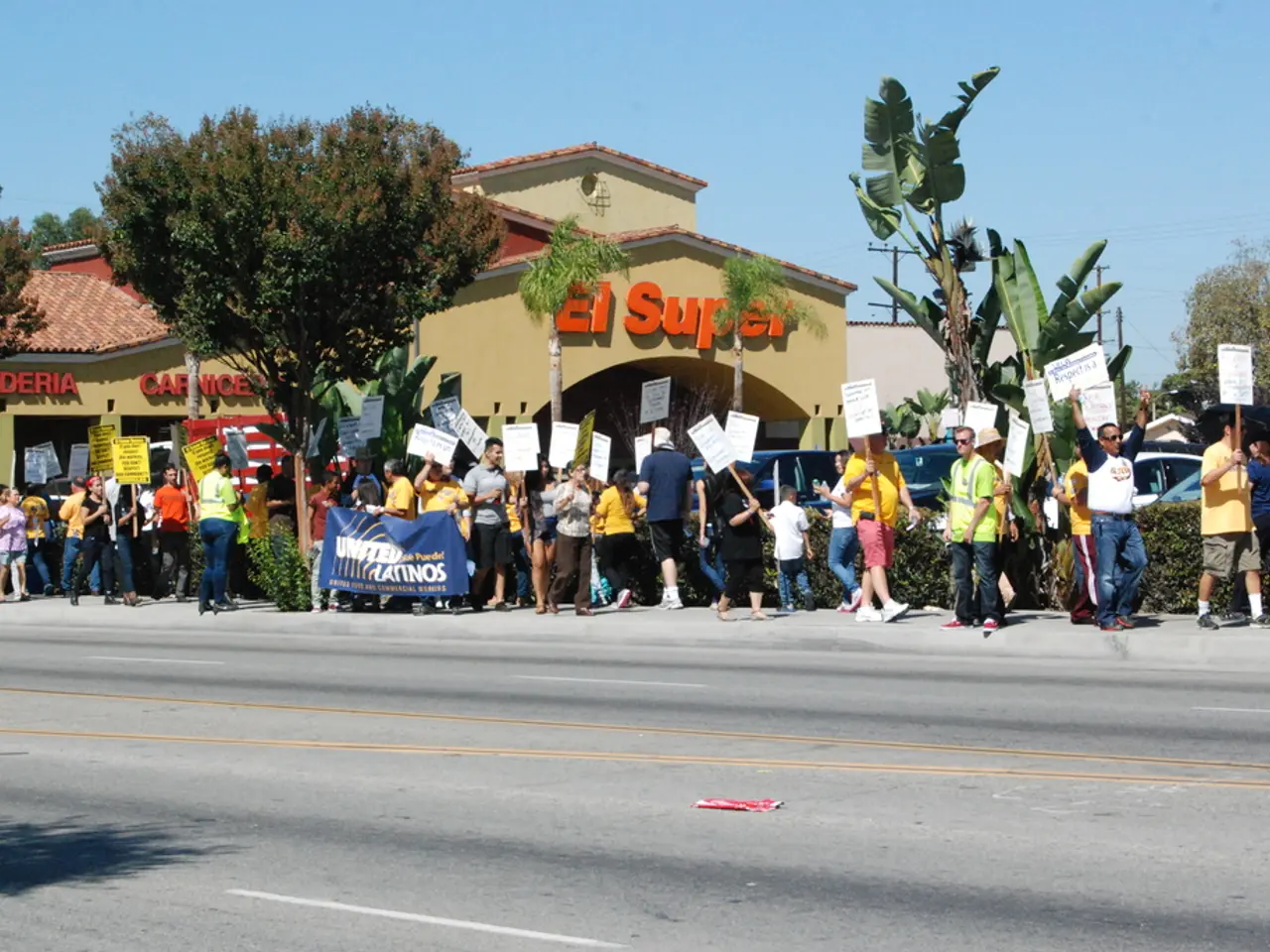Public Poll Reveals Widespread Discontent Towards Government and Chancellor
In August 2025, Chancellor Friedrich Merz's approval rating is at a dismal 29%, according to a new survey by Insa for "Bild am Sonntag". This marks a significant decline from earlier in the year when his approval was around 43%. Merz’s popularity is particularly weak in East Germany, where approval falls to 20%, compared to 31% in the West.
Regarding the black-red coalition (the governing grand coalition between Merz’s CDU/CSU and the SPD), public satisfaction is also poor. Only about 27% of Germans express satisfaction, while 60% are dissatisfied with the coalition government. This compares unfavorably to the previous government under Olaf Scholz (SPD), who initially had higher approval during his first 100 days.
Meanwhile, the far-right Alternative for Germany (AfD) has surged to become the most popular party, reaching around 26% support, overtaking the CDU/CSU coalition’s 24%. The SPD remains stagnant at a lower 13%. AfD’s stronghold remains in East Germany, where they receive close to 50% support in some regions.
Despite Merz’s low approval, a slim majority (52%) of the population believes the current black-red coalition will last until the end of the legislative period in 2029. However, concerns about the government’s long-term viability are growing given these dissatisfaction levels.
Here's a summary of the current status and comparison to the previous government under Olaf Scholz:
| Aspect | Current status (Aug 2025) | Comparison to previous government (Olaf Scholz) | |----------------------------|----------------------------------------------------|---------------------------------------------------------| | Chancellor Friedrich Merz | ~29% approval, 67% disapproval | Scholz started at ~43% approval in first 100 days | | Black-red coalition (CDU/CSU + SPD) | 27% satisfaction, 60% dissatisfaction | Scholz coalition had higher early satisfaction but later dropped | | Alternative for Germany (AfD) | Most popular party at 26% support | Was less popular in the previous government period | | Likelihood of coalition survival | 52% believe coalition will last until 2029 | Coalition faced similar future viability questions |
These trends indicate a downturn in public confidence under Merz compared to Scholz initially, alongside a significant rise of the AfD as the leading party in public opinion polls. The Greens have 11% in the current poll, while the Left has 9% (-1). The Alliance for Progress and Social Justice (BSW) remains at 4%. The FDP comes in at 4% (+1). Compared to the traffic light coalition, 28% of survey participants believe that black-red performs better. Thirteen percent did not provide an answer. According to the current Sunday trend of "Bild am Sonntag", black-red would currently not have a majority in government. The AfD would currently be the second strongest force with 25%. Twenty-four percent believe the opposite. Twenty-seven percent of respondents find Merz's work (rather) worse.
In early June, around a month after the inauguration of the black-red coalition, 37 percent were satisfied and only 44 percent were dissatisfied. No majority was found for the black-red coalition in the survey. Only 30 percent are satisfied with Chancellor Friedrich Merz's work, while 59 percent view him critically. The Union and SPD would remain at 27% and 15% respectively. In March 2022, 43 percent of respondents were satisfied with the then federal chancellor Olaf Scholz (SPD) after 100 days in office, while only 41 percent were dissatisfied.
- The current policy-and-legislation landscape, under Chancellor Friedrich Merz, shows a significant drop in public approval compared to his predecessor, Olaf Scholz, with only 29% approval and 67% disapproval.
- In the realm of politics, the general-news sentiment suggests a rise in the popularity of the far-right Alternative for Germany (AfD), making them the most popular party, while the black-red coalition, led by Merz, experiences a decline in approval and satisfaction from the public.








